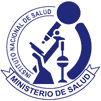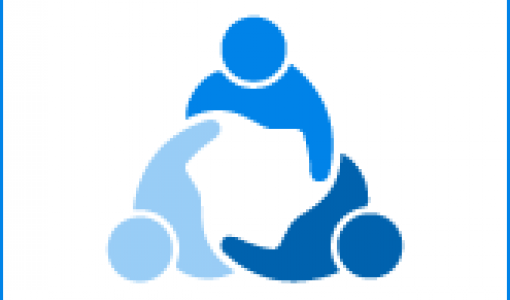Clinical Trials Inspections
Inspections are official supervisions of the documents, sites, registries, files or any other relevant source related with the clinical trial that can be done to the Sponsor or CRO, Institutional Research Ethics Committees or at any other place involved in the clinical trial. These inspections can be ordinary or extraordinary.
Ordinary Inspections
The inspectors of the General Office of Research and Technology Transfer carry out routine inspections that are scheduled annually, according to the following criteria:
Clinical Trials Inspections
- Vulnerable Populations
- Phase of the Clinical Trial
- Impact of the research on public health
- Safety of the Research Product
- Type of the Research Product (Recombinant Product, Monoclonal Antibody, Cell Therapy, Gene Therapy, New Chemical Entities, Blood Products, Orphan products, among others)
- Therapeutic indication (new clinical indication of a research product, evaluation of a research product in a population not thoroughly studied in previous phases, among others).
- By request of the Clinical Trial Evaluation Team
Research Centers Inspections
- High Subjects Recruitment.
- Researchers’ background.
- High number of Clinical Trials
- Relevant information from Safety Reports and/or Progress Reports
- History of Inspection (never inspected, long time since last inspection, previous inspection with findings)
Extraordinary Inspections
Extraordinary inspections are not scheduled but carried out in response to specific trigger elements as for example:
- A complaint received by phone (748 1111, extension 2191), by e-mail (This email address is being protected from spambots. You need JavaScript enabled to view it.) or by formal document to the National Institute of Health.
- Any relevant information received from the Safety Reports, Progress Reports and/or Notifications of Deviations.
- A request by the General Director of the General Office of Research and Technology Transfer or the Executive Direction.
- A request of the Clinical Trial Evaluation Team
Notification of the Inspections
Ordinary Inspections will be previously informed to the Sponsor or its Legal Representative or CRO, who in turn will notify the Principal Investigator responsible for conducting the clinical trial. The notification of the inspection will be made with at least two (2) business days in advance of the scheduled date in order to ensure the presence of the Principal Investigator and the Research Team, and/or the Sponsor or its Legal Representative or CRO; and to have access to the clinical trial records.
Extraordinary inspections may be carried out without the requirement of prior notification.
Classification of the Inspections findings
Findings may be classified as “minor, major or critical” in order to adopt appropriate measures to redirect violations to the ICH-GCP guideline, ethical norms and/or national Clinical Trials Regulations.
Minor findings: conditions, practices and processes that would not be expected to adversely affect the right, safety or well-being of the subjects and/or the quality and integrity of data. Minor findings reveal the need for improvement of conditions, practices and processes. These include (and are not limited to):
- Make changes to the conditions of authorization of the clinical trial or amendments to the research protocol without having been previously authorized by the regulatory authority as long as these modifications do not adversely affect the rights, safety or well-being of the subjects and / or the quality and integrity of the data.
- Conduct the clinical trial without adjusting to the content of the protocols on the basis of which the authorization was granted as long as these deviations do not adversely affect the rights, safety or welfare of the subjects and / or the quality and integrity of the data.
- Clinical trial information not recorded or handled and stored in a manner that does not allow accurate reporting, interpretation and verification as long as this information does not adversely affect the rights, safety or welfare of the subjects and / or the quality and data integrity.
Many minor findings might indicate a bad quality and the sum might be equal to a major finding with its consequences.
Major findings: conditions, practices and processes that might adversely affect the rights, safety or well-being of the subjects and/or the quality and integrity of data. Major findings are serious findings and are direct violations of GCP principles. These include (and are not limited to):
- Make changes to the conditions of authorization of the clinical trial or amendments to the research protocol without having been previously authorized by the regulatory authority.
- Non-compliance with the obligation to communicate Serious Adverse Events to the General Office of Research and Technology Transfer.
- Late communication of Serious Adverse Events, Serious Adverse Reactions and Suspected Unexpected Serious Adverse Reactions occurred in Peru.
- Promotion or advertisement of the research product.
- Conduct the clinical trial without adjusting to the content of the protocols on the basis of which the authorization was granted as long as these deviations might adversely affect the rights, safety or welfare of the subjects and / or the quality and integrity of the data.
- Conduct the clinical trial without the qualifications, training and / or experience to perform the research tasks.
The sum of many major findings be equal to a critical finding with its consequences
Critical findings: conditions, practices and processes that adversely affect the rights, safety or well-being of the subjects and/or the quality and integrity of data. These include (and are not limited to):
- Use of the Research Product in participants without having the authorization of the regulatory authority.
- Conduct clinical trials without the authorization of the regulatory authority.
- Breaches of confidentiality and privacy of the research subjects.
- Non-compliance with the security measures adopted by the General Office of Research and Technology Transfer.
- Conduct clinical trials without the informed consent of the research subjects.
- Fail to provide information about the clinical trial to the research subjects.
- Conduct the clinical trial without adjusting to the content of the protocols on the basis of which the authorization was granted as long as these deviations adversely affect the rights, safety or welfare of the subjects and / or the quality and integrity of the data.
- Fabrication or falsification of information related to the clinical trial or its data.
- Prevent inspector to perform the inspections.




